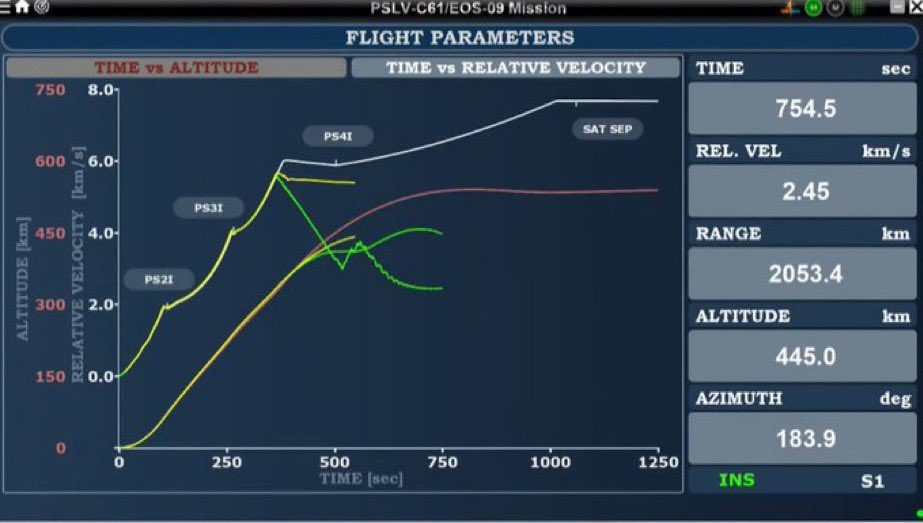Last week UK newspaper (as the weekly current affairs magazine styles itself) The Economist (thanks Jeff Foust) made public a “victory” by Bigelow Aerospace that intends to take “sovereign” clients (that’s governments to you and me) to his orbital complex (that’s space station to you and me) early in the next decade. The victory being that there will be no ITAR ruling against taking foreign nationals to the Bigelow station, unless their Sudanese, North Korean, Iranian or Chinese
Much is made of the US government’s ITAR rules, aka International Traffic of Arms Regulations, and the limitations they place on US industry’s ability to export space technology and services
Hyperbola spoke to the US Department of State’s bureau of political military affairs, which oversees ITAR, about, well, 18-months ago at least about this issue. They said then that “spaceflight participants,” to use the jargon, could be informed sufficiently enough for their consent to be given without giving them sensitive information. No story there then said I and it was all duly filed under, don’t bother
But this selective legal anlaysis of the export control laws surrounding spaceflight ignores perhaps the most significant factor of all, the Cold War era Outer Space Treaty, and when Hyperbola asked the bureau about this last year it never got an answer
You see the Outer Space Treaty, brought about in 1967 by the US, Russia and the UK (Yes who would have believed it) and signed by almost 130 governments and ratified by 98 of those, includes the following principles
States shall be responsible for national space activities whether carried out by governmental or non-governmental activities
and that
States shall be liable for damage caused by their space objects
Read those closely, or non-governmental activities, means that anything done by any citizen regarding spaceflight is automatically the business of that citizen’s government (which may explain Virgin Galactic being on one of the boards of the British National Space Centre – it has to oversee UK obligations for this treaty that the country helped bring about) and liable for damage caused by their space objects, means where third party damage occurs on foreign soil the legal process to sort it out is between governments, not corporations or private citizens
So for example if Virgin Galactic’s SpaceShip Two goes whizzing supersonically into Mexico, only about 50 miles away from Las Cruces and its Spaceport America, then the UK ambassador to Mexico, Giles Paxman, could well find himself dealing with the legal outcome of that treaty his government helped create 40-odd years ago
Governments will be litigated against by the nation whose buildings, roads, bridges, water source or farmers field was made unfit for use by the spacecraft, of the first party, to use the legal jargon
What on Earth does that all mean and what has it got to do with ITAR anyway?! I hear you loyal Hyperbola readers cry
It means that foreign citizens’ governments will have to take an interest in their citizens involvement. Imagine for example a scientific payload, could it potentially be the cause of an accident that could see third party damage? Or where a suborbital vehicle is used for subsystem testing, could the subsystem’s integration be cause for ill? Or would the purposes to which equipment onboard a commercial space station is used for an experiment, result in an accident that leads to third party damage? There are a variety of situations that could be imagined that would trigger a need for government involvement
And this is where the ITAR factor comes in and was the question I couldn’t get an answer too. If a government, to meet its own liabilities under its Outer Space Treaty related acts it ratified (obviously the application of this is less clear with states that have not ratified), requires a certain amount of detailed information from the US launch vehicle, spacecraft provider, can those organisatons under ITAR actually provide the data required?
Assuming you haven’t lost the will to live while reading this interpretation, to sum up, the problem is that commercial spaceflight customers’ governments could end up requiring information that US law simply prohibits and action could be taken to end the attemped commercial spaceflight deal
A counter argument could be, “we just don’t know if that will be the case the law has never been tested”, but at the conferences I’ve been to the lawyers tendencies always seem to veer towards an assumption that the treaty does apply
I spoke to Res Communis‘ P. J. Blount about it at the International Astronautical Congress in Glasgow last year and haven’t seen anything on that blog that might answer this question since
And what about those nations that simply won’t be allowed to go up by the US government? Funnily enough Iran is a signatory nation and China and North Korea (quite recently) have all acceded to the treaty while Sudan is not party to it. Not that that will make much difference







